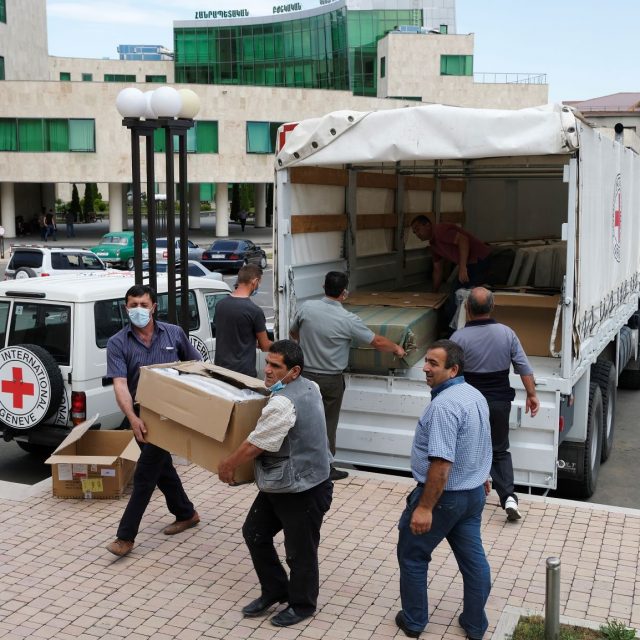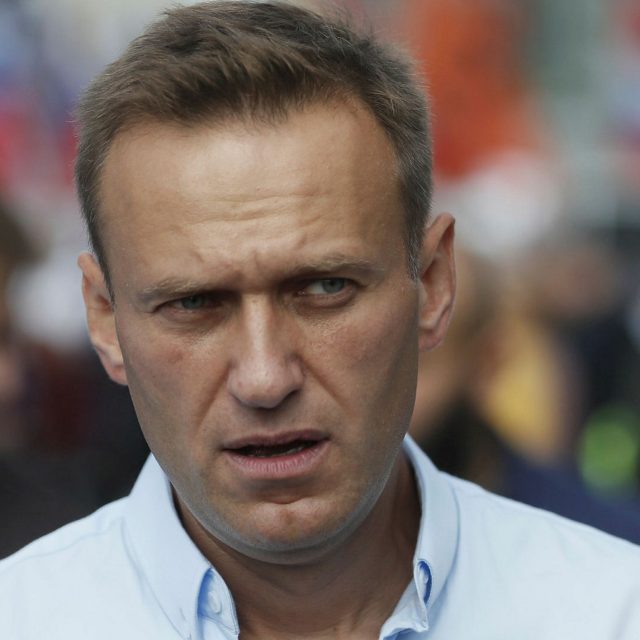This blog was first published in www.democratic-europe.eu and is reproduced here with the permission of the authors.
When, during a military confrontation (or heated debate), one party is unable to tackle its adversary in open combat (or through convincing arguments), it resorts to treacherous tricks (or substitution of senses), exploiting the enemy’s weaknesses. Modern-day Western democracy, having demonstrated its potential vulnerability, is now in crisis.
Citizens, institutions, and governments that empower and defend such basic democratic values as political and social equality, liberty, pluralism, and human rights abide by (to this end) the principle of tolerance. However, today there’s a situation where the Common European home, for the sake of its commitment to democratic values, is in fact waging a latent war on the global information front, where Russia is the main adversary of the United Europe. However, given that Russia, either alone or within the stillborn (in 2014) Eurasian Economic Union, is unable to win a fair competition, its only task has become to sow discord between the EU and its Western allies (on Nord Stream 2, for example), to boost contradictions existing between its Member States (like Brexit), and to destabilize it from within.
The latter involves the following tactical steps: financing both the far-right, the far-left, and the major populists (the basic principle is to support everything radical); promoting all European separatist movements; forming a network of controlled mass media and attracting public opinion leaders with the use of intelligence operatives for the purpose of broadcasting versions of certain events that are favorable to the Kremlin; carrying out special influence operations through a variety of non-governmental organizations formed across Europe, which often act as universal Trojan horses.
Thus, while the start of the hearing in The Hague, the Netherlands, is approaching (March 9-13, 2020) of the case investigating the downing of Malaysian Boeing 777 (flight MH17 Amsterdam-Kuala Lumpur), Russia has created (and activated) a number of organizations (and agents of influence) in order to discredit the findings of the Joint Investigative Team and to avoid liability. For example, on December 25, 2019, the allegedly “independent journalistic platform” Bonanza Media started its work, employing… two (!) persons – a correspondent from Moscow (who formerly worked for Russia Today, Moscow’s main propaganda channel) Yana Yerlashova and Dutch journalist Max van der Werff, whose pro-Russian views vividly testify to the six years of close cooperation with the commanders of the illegal armed groups of a separatist quasi-formation “DPR”. So, on February 17, 2020, this “Dutch media outlet”, which for some reason has never published anything before, suddenly releases a news piece saying that in July 2014, in Donbass, in the area of the MH17 crash, there have allegedly been no Buk anti-aircraft missile launchers. And this news was instantly and simultaneously picked up by a wide variety of Russian media, unanimously referring to some “independent Dutch media outlet”. Well, now everything appears to be quite clear with this “journalistic organisation” specifically.
However, sometimes the Russians work much more cunningly. One of Moscow’s most urgent goals at the moment is to secure international legitimization of the occupation of the Ukrainian Crimean peninsula. To this end, the Russians implement (sometimes overtly and, more often, through affiliated structures) a variety of the most elaborated operations. For example, on February 6, 2020, the Russian Association of Ancient Cities (within Rostov region of the Russian Federation, Krasnodar area of the Russian Federation, and nine municipalities of the “Republic of Crimea”) was set up. The occasion was the anniversary of the founding (2,500 years ago) of the Bosporus Kingdom (which had the capital of Panticapay, now the Crimean city of Kerch). The pretext is the preservation of the archaeological heritage of ancient times. It may seem as an ordinary event of historical and cultural nature. However, on April 24-25, 2020, during the upcoming 6th Yalta International Economic Forum, set to be held in the annexed Crimea, they plan to set up, based on the already mentioned Russian structure an “International Association of Ancient Cities”, to join which Russia has already invited Greece, Italy, Bulgaria, Turkey, Serbia, Armenia, Israel, Lebanon, Jordan, Syria, and Tunisia. Indeed, culture officials based in Athens, Rome, Sofia, and Ankara are not indifferent to preserving the heritage of the ancient era, however, they must be aware that all Kremlin-controlled media around the world will be yelling that “four NATO Allies, three EU member states, and some other countries have crossed out geopolitical confrontation, Western sanctions, artificial restraints, and other barriers, and have finally officially recognized Crimea as part of the Russian Federation. Who knows, maybe these officials still have time to reflect on this…
There are also encouraging examples of resistance to the Russian Trojan Horses by the European democratic community. For example, in March 2019, the Ministry of Justice of Belgium registered a non-governmental organization, the Tavrida International Association (co-founded by the Moscow-based “International Council of Russian Compatriots” and the Brussels-based “European Russian Community”). This NGO claimed its task was what seemed to be a perfectly acceptable one at first sight – to defend the interests of the Crimea population in international instances. However, shortly,the Belgian Ministry of Justice canceled the NGO’s registration after its lawyers concluded that, in fact, the organization’s activities threaten the national interests of the Kingdom of Belgium (one of the arguments was that the NGO was set up in agreement with the Russian Presidential Administration and for money from the Russian state budget).
Having found itself being illegitimate, the Tavrida International Association has begun to work out options for its re-registration in Austria, Italy, or Switzerland. Undoubtedly, it would be desirable for them to get into the official registry of any EU state, since this allows NGO representatives to gain access to the sidelines of the European Parliament and have an opportunity to meet with members of the European Commission. It is possible that if they fail to re-register in the EU, the said NGO will be renamed into “Meotida” (Greek name of the Azov Sea), “Scythia” (the name of the ancient group of nomadic tribes on the Crimean peninsula), or whatever. In any case, the inner essence will remain unchanged – this NGO will perform the function of the Russian Trojan Horse, which will keep waiting for a favourable moment at the gate of the European Fortress.
Currently, having got an unfavorable preliminary judgment of the International Maritime Tribunal (Hamburg, May 25, 2019) regarding the Kerch incident, Russia decided to employ Tavrida International Association at the legal front. The latter was instructed to convene in the spring of 2020 the so-called Public Tribunal, during which they intend to: convict Kyiv of allegedly breaching the Russian state maritime border at the end of 2018 with its three naval boats; condemn the Ukrainian authorities’ policy on Crimea, which allegedly led to a humanitarian crisis on the peninsula; deny the facts of Russia’s violation of rights and freedoms of Crimean residents and the lack of access to the peninsula for international observers; deny the unprecedented militarization of the peninsula, including the deployment of nuclear tactical weapons; justify a long-standing policy of forcibly imposing Russian citizenship on the peninsula and withdrawing Ukrainian passports; justify the policy of the Russian Federation aimed at artificially altering the demographic structure of Crimea by moving to the region from mainland Russia representatives of other ethnic and social groups (primarily Volga, Urals and Siberian Tatars), as well as Russian military retirees, while forcing out of the peninsula indigenous Crimean Tatar and Ukrainian populations. Generally, the main purpose of this staged show, with the participation of bought-up and biased experts, would be dissemination in the United Europe the belief that the annexation of Crimea was legitimate.
Now it all depends on how adequate the reaction of a democratic Europe would be to this yet another Russian attack they are facing.




